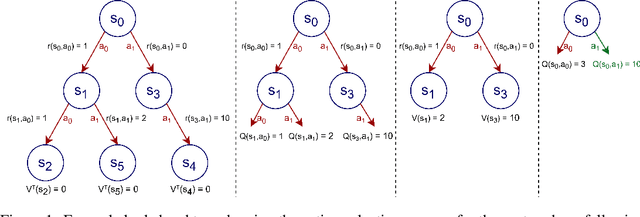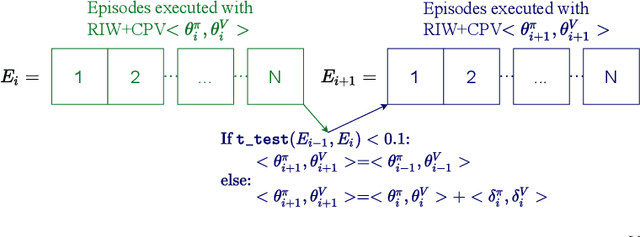Adrian Pearce
Width-based Lookaheads with Learnt Base Policies and Heuristics Over the Atari-2600 Benchmark
Jun 23, 2021



Abstract:We propose new width-based planning and learning algorithms applied over the Atari-2600 benchmark. The algorithms presented are inspired from a careful analysis of the design decisions made by previous width-based planners. We benchmark our new algorithms over the Atari-2600 games and show that our best performing algorithm, RIW$_C$+CPV, outperforms previously introduced width-based planning and learning algorithms $\pi$-IW(1), $\pi$-IW(1)+ and $\pi$-HIW(n, 1). Furthermore, we present a taxonomy of the set of Atari-2600 games according to some of their defining characteristics. This analysis of the games provides further insight into the behaviour and performance of the width-based algorithms introduced. Namely, for games with large branching factors, and games with sparse meaningful rewards, RIW$_C$+CPV outperforms $\pi$-IW, $\pi$-IW(1)+ and $\pi$-HIW(n, 1).
Social planning for social HRI
Feb 21, 2016Abstract:Making a computational agent 'social' has implications for how it perceives itself and the environment in which it is situated, including the ability to recognise the behaviours of others. We point to recent work on social planning, i.e. planning in settings where the social context is relevant in the assessment of the beliefs and capabilities of others, and in making appropriate choices of what to do next.
 Add to Chrome
Add to Chrome Add to Firefox
Add to Firefox Add to Edge
Add to Edge